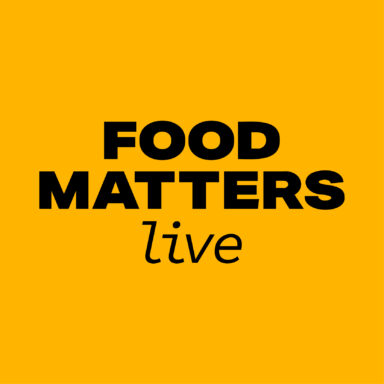Nutrition courses in the UK – what’s available?

If you’re interested in a career in the food and drink industry, choosing a nutrition course may be the best path – but which nutrition course is the best one for you?
There are many different kinds of nutrition courses available from various universities and colleges across the UK, and this amount of choice can make it difficult to know the right option to follow your desired career pathway.
Nutrition courses available in the UK
From half-day training courses to degrees and postgraduate qualifications, the available nutrition courses in the UK are incredibly varied.
To become a registered nutritionist, you will need to demonstrate that you have obtained the required knowledge and level of understanding acquired from a nutrition science degree of at least a BSc (Hons) level.
Below, we detail a selection of undergraduate, postgraduate, and other nutrition courses in the UK to give you an idea about the range of training opportunities on offer for your desired career – including the different types of study each will include.
Nutrition BSc(Hons)
As food is always in the media, with a near constant flux of information about diets and the impacts of food on our health, this nutrition course will enable students to become a part of the solution to address these kinds of problems.
Students undertaking a nutrition BSc(Hons) course will explore nutrition, physiology, and exercise based on studies on applying the most current and up-to-date knowledge about human nutrition. In addition, there will also be a focus on public health, food consumer behaviour, aspects of food-related diseases and how nutrition can aid in combating these diseases.
The first years of the nutrition BSc(Hons) focus on the basics of human nutrition. This includes studying the agri-food sector, consumer behaviour, human physiology, and the impacts of exercise and good nutrition. Key concepts of public health and nutrition will also become familiar to students.
Second years in this course will explore food policy, behavioural changes, and nutrition health and disease – the first half of the second year also brings forward a choice of focusing on public health, sport and exercise, or core nutrition.
Core modules include:
- Introduction to key concepts in health and public health
- Introduction to public health research and project methods
- Foundations of physiology for sport and exercise
- Introduction to human nutrition
- Exploring the agri-food sector
- Food consumer behaviour
- Food policy
- Enabling behavioural change
- Nutrition, health and disease
- Community engagement for public health
Nutrition with food marketing BSc(Hons)
This three-year nutrition with food marketing degree explores the links between diet and health while exploring how food marketing plays a role within these links.
The first year of this nutrition course will introduce the underlying sciences behind nutrition, food marketing, and agri-systems. It will cover issues which are arising throughout the global food chain, from production to consumption, as well as the scientific nature and properties of a huge range of foods and nutrients.
This knowledge will evolve as students develop their core knowledge of nutrition and other areas of study related to this course, and it will be used to explore the assessment of good nutrition and its importance at each human life stage. This will be backed up by investigations into the food science and product development industries, with studies into the latest concepts and applications of marketing strategies.
The final year will conclude studies with areas such as nutrition and its relation to health and disease, metabolic and personalised nutrition, marketing metrics, and exploring how communication can bring about positive behavioural changes.
Core modules include:
- Introduction to marketing and consumer behaviour
- Introductory business economics
- Human physiology and practical skills
- Introduction to nutrition
- Practical skills for nutrition
- Bioenergetics
- Marketing digital strategy
- New food product development
- Marketing and public policy
- Macro-and micronutrients
- Food science and technology
- Nutrition through the lifecycle
- Measurement and assessment of dietary intake and nutritional status
- Data & marketing analytics
- Communication and behaviour change
- Personalised nutrition
- Nutritional epidemiology and public health
Sport and exercise nutrition BSc(Hons)
With a degree in sport and exercise nutrition, students will obtain specialised knowledge and skills in the food science and manufacturing sector. This will enable graduates to advise on the diet of clients, evaluate treatments, write health reports, and analyse food for sport and nutritional purposes.
Students will observe the issues which make the headlines in the modern era – investigating the topics which are ever-present in our everyday lives. As the human relationship with food has never had such a high profile and presence in the public sphere, this course will explore the constant adaptations and innovations the food industry is generating to adhere to constantly changing consumer trends and developments.
Core modules include:
- The chemistry of food
- Principles of nutrition and food
- Systems physiology
- Nutrition for exercise and health
- Human metabolism and biochemistry
- Sports nutrition
- Exercise physiology
- Performance nutrition
- Nutrition in health and disease
- Exercise prescription
- Health promotion
Nutritional sciences BSc(Hons)
A nutritional sciences degree will enable students to gain an understanding of the link between foods, diets, dietary patterns, nutrients, and physical health. This understanding is paramount in the current environment, and this is where nutritionists can help.
During this nutrition course, students will look at the constant focus on food in the headlines and how the food industry is constantly adapting to new consumer trends. Students will also gain a working knowledge of a wide range of nutrition issues affecting our current climate including the origins of certain nutrition-related illnesses and the chemistry of food and dietary assessments.
Students will have the opportunity to obtain the specialist knowledge and skills required for food science and manufacturing – enabling successful graduates the ability to provide advice on a range of food topics such as diet, nutritional treatments, and the analysis of food.
Core modules include:
- The chemistry of food
- Physiology and health
- Principles of food and nutrition
- Lifespan nutrition
- Nutrition in health and disease
- Public health nutrition
Nutrition (exercise and health) BSc(Hons)
For those interested in promoting good health and providing help to clients to prevent disease, this nutrition course offers practical knowledge of the vast benefits nutrition and exercise can offer to improve people’s wellbeing.
Students will explore a wide range of nutrition-related topics to gain a comprehensive understanding of how nutrition affects human physiology – this will include anatomy, physiology, energy metabolism, sport and exercise psychology, and nutrition.
Throughout the years spent on this nutrition course, students will be introduced to the essential and fundamental concepts behind food and nutrition together with sport and exercise psychology. This knowledge will only grow as students examine the principles of energy metabolism, enhancing their understanding of exercise physiology and the psychology behind sport and exercise.
Core modules include:
- Functional anatomy and exercise physiology
- Applied nutrition
- Research methods in exercise science
- Public health nutrition
- Exercise and health psychology
Fitness, nutrition, and health BSc(Hons)
Studying nutrition and health provides students with the opportunity and knowledge of how to tackle social issues, such as the UK’s obesity epidemic. Learners will gain an understanding of the impact nutrition and exercise has on health, fitness, and disease, whilst providing the tools to professionally help change these behaviours when entering the industry.
By completing this nutrition course, students will gain practical in-depth knowledge of nutrition and exercise, as well as a comprehensive understanding of how the topics covered can improve the well-being of the population.
Core modules include:
- Applied biological sciences for food and human health
- Social science for sport and exercise
- Nutrition and the consumer
- Safe food handling
- Properties of food
- Food design and promotion
- Nutrition through the lifespan
- Public health nutrition and health promotion
- Food characterisation
- Clinical nutrition
- Lifestyle management
- Food and behaviour
- Physical activity for special populations
Level 5 nutrition course: nutrition and immunity
Building on content which is learnt at Level 4, this Level 5 standard qualification enables students to provide evidence-based advice to clients which supports their dietary approaches and their gut health. This course offers students an advanced understanding of how diet can support the immune system, providing the skills and understanding of the processes of immune function, including auto-immune conditions and balancing gut bacteria.
Learning includes:
- Gut health and immunity
- Micronutrients and immune function
- The components of the immune system and how they function
- Diet and auto-immune conditions
- Dietary practices associated with optimum immune function
Level 5 nutrition course: advanced nutrient metabolism
The UK’s first Ofqual recognised Level 5 nutrition course, this is a course which is ideal for individuals aiming to enhance their understanding of nutrient metabolism.
Through this course, students will gain an in-depth understanding of how nutrients are metabolised once consumed, including their effects on hormones, body composition, and long-term health. Students will also explore the science behind different approaches to fat loss – discovering which methods work, and which are not as effective as they are touted to be.
Learning includes:
- Hormonal and metabolic effects of carbohydrate consumption.
- Insulin and blood glucose regulation
- Factors affecting insulin sensitivity
- Low carbohydrate and high-fat diets
- The role of hormones in lipid metabolism and body composition
- Appetite regulation
- Benefits and risks of high protein diets
- Approaches to fat loss: macronutrient balance versus energy balance, very-low-calorie diets, intermittent fasting
- Impact of dietary factors on cholesterol and blood lipids
- Essential fats: omega 3 and 6 fats, ideal ratios, and health benefits
- The role of micronutrients (vitamins and minerals) in energy metabolism
Level 4 RSPH nutrition
Accredited by the Royal Society for Public Health, this Level 4 course provides the knowledge and skills required to advise a wide range of clients who have a wide variety of differing goals.
From long and short-term goal advising to sportspeople, vegans, pre and postnatal clients, older adults, and more, the Level 4 RSPH nutrition course is the perfect course for people who want to provide expert nutrition advice.
Learning includes:
- Nutrition and weight management
- Behaviour change coaching
- Nutrition for sport and exercise
- Childhood nutrition and obesity prevention
- Pre and postnatal nutrition
- Vegetarian, vegan and plant-based diets
- Nutrition for older adults
- Meal planning
Level 3 nutrition and weight management
This nutrition course is the ideal starting point for anyone with a passion for health to understand the fundamentals behind nutrition and weight management. Certified by the Association for Nutrition, the nutrition and weight management course is a valuable addition to any career in the fitness industry and beyond, with perspectives into catering, corporate wellbeing, and community health programmes.
Learning includes:
- Behaviour change coaching: easily assess clients and choose the right strategies and techniques to facilitate positive change in their food and drink behaviours.
Nutrition and weight management: provides a thorough knowledge of nutrition, healthy eating habits, and weight management to provide professional advice to a vast range of clients.








